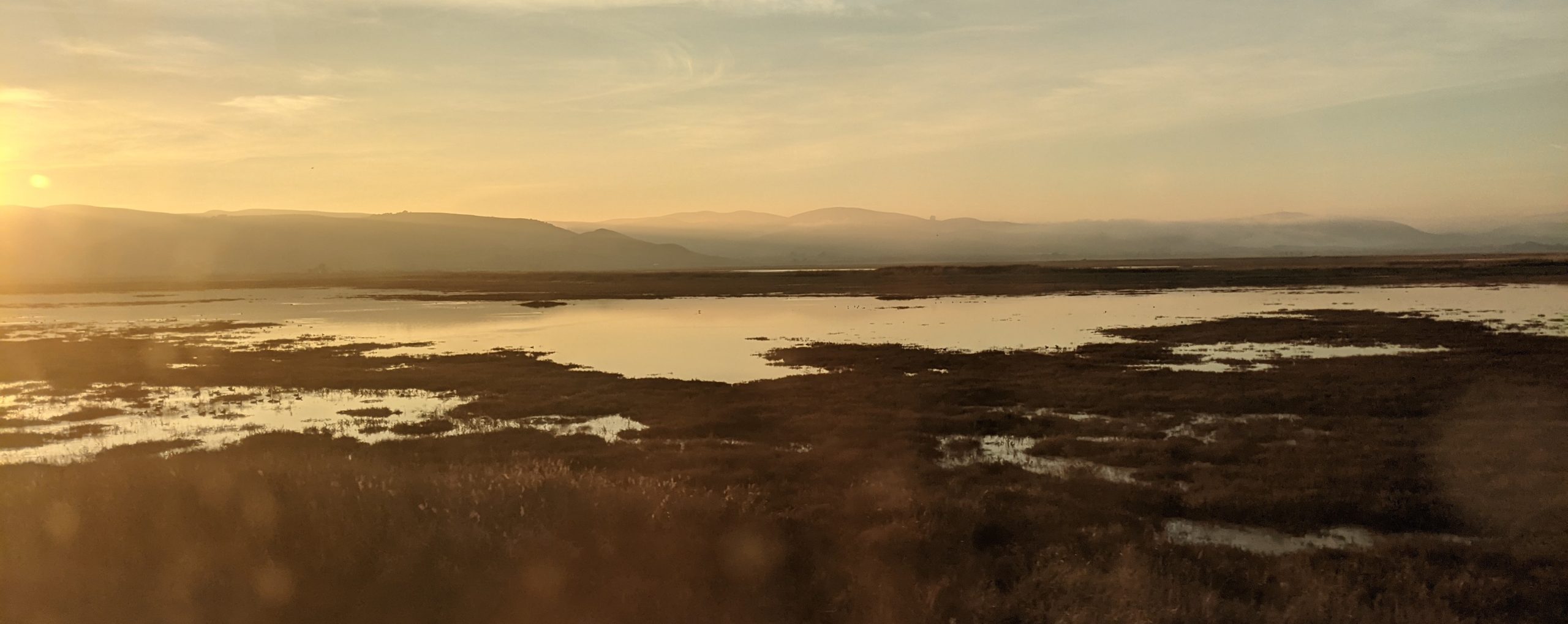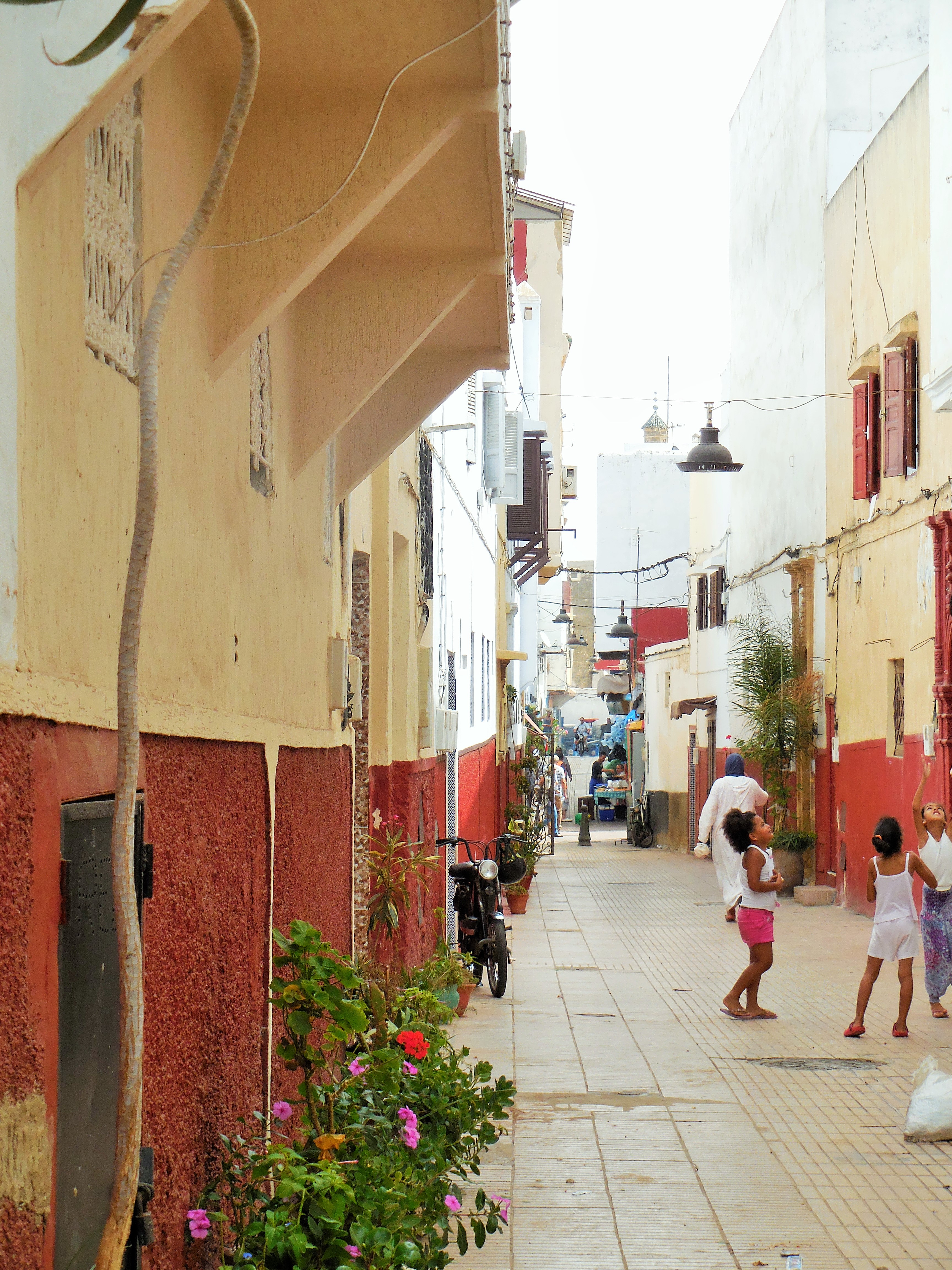The first few days of study abroad have been like freshman week all over again, but with the added benefit of knowing that I can, and have, made friends in a similar hectic situation, and the added detriment of not knowing the culture or the language. I can now empathize with all those Southerners who came to Cambridge for university.
We took a bus tour yesterday in which we got a helpful three categories of Rabat: pre-colonial, colonial, and post-colonial/modern. I’ll be staying in the pre-colonial section, the old medina. The city wall is from the 12th century— a king wanted to move his capital away from the mountains and to the sea, but he died, and Rabat didn’t become the capital again until Morocco was a French protectorate. Most of the old houses here are about the same age as the old houses in the Boston area, though obviously the architecture is very different, with large block-like houses, winding, narrow roads, and terraces on almost every roof. There’s a beautiful old fortress (Kasbah) overlooking the ocean, and there are street cats everywhere (they all look very happy).
The legacy of the colonists includes the section by the ocean (called Ocean) and the neighbourhoods that surround the medina, as well as buildings throughout all corners of the city. Unfortunately, Rabat’s late colonial and early post-colonial era (aka, eras of lots of building) fell during one of the Dark Ages of architecture, so there are a lot of the industrial-looking eyesores that I associate with university art buildings. But we passed some very impressive buildings during this part of the tour: the national library (a literal shrine to science, as secularists built it with a tower because they worshiped knowledge like the religious worshipped God) and the palace.
Rabat has some ultra-modern areas, with completely glass buildings and large homes with gardens for the upwardly mobile. There are huge construction plans—there’s already a finished tram that goes around the city, looking like it’s come from the future—there are lots of billboards up with pictures of the future of Rabat, which, could have, in another context, been from an Apple catalogue. It reminded me of when I lived in Scotland— I sometimes liked being around old, old things, but as often wanted to forever shut myself in an ultra-modern office where the ghosts of the past couldn’t touch me. I feel that Rabat, with such a confused and rich history, is crying out in the same way.
I’ve greatly enjoyed Rabat, not least because this is one of the best places in the world to practice foreign language skills. Or worst, if you’re trying to learn a pure language. I’m here to study Arabic, so I try to speak Arabic with people, but because of my limited vocabulary, that turns into half-French, and then whenever I lose a word I say it in Spanish or English— chances are that the person I’m speaking to will know at least a bit of all the above languages and will be able to piece together what I’m saying. Remember, this is a place where the dialect can include three languages in a single sentence. For example, “fork” in Moroccan Arabic (darija) is “fourchette”, while most words in darija are effectively Modern Standard Arabic without vowels. So first Morocco travel tip: learn useful words in a few different languages, and you’ll be understood when you try to make friends/get a cab/bargain (and be forever jealous of people who can code-switch out of choice, not because they can only flail-speak three-quarters of the languages on their resume).
Something I want to begin to speak about, and will probably come back to, is the experience of American women of colour on the street. After being warned about street harassment, I searched for experiences/tips before I got here, but almost every blog/article on this was written by a white woman. In my past experiences traveling in Central America (where I’d also heard about street harassment), about 95% of street comments I’ve received have been about my race, not my sex/body/whatever, so I was interested to see what would happen here. My program is majority white, but there are about seven of us who don’t look American to Moroccans, and our experiences, at least so far, have differed from those of the white women. While my darija isn’t good enough to know for sure, the comments I’ve heard have mostly just been about my race (“Chinois!” and the classic “Konichiwa”, which I think I’ve gotten in every city ever, including my own 8000 person town)—I think people think I’m some actual Asian tourist from Asia and so don’t associate me with all of the American stereotypes. A few of the other women have been repeatedly mistaken for Moroccan, and so their experiences, too, have obviously been different. But this is already long enough.
Next post will be about my host family, school, or both!

